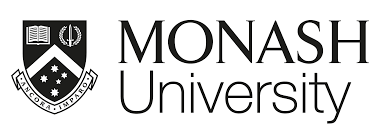Date Posted – 25 May 2021
Monash University has launched a new postgraduate degree to address a major skills shortage in the Australian pharmaceutical sector and its allied industries.
The Master of Pharmaceutical Science will be offered by the University’s highly regarded Faculty of Pharmacy and Pharmaceutical Sciences (FPPS), which this year was ranked #2 in the world for Pharmacy and Pharmacology, second only to Oxford University.
The new degree is being launched at a time when there is strong demand for pharmaceutical graduates in Victoria, which will only increase as the sector continues to grow.
With one of the world’s largest life science clusters, according to Victoria’s Department of Jobs, Precincts and Regions Melbourne-based companies currently make up over 40 per cent of all ASX-listed med-tech and pharmaceutical firms in Australia, and employ around 31,000 people.
“As the world continues to face a number of urgent health challenges, pharmaceutical scientists will play a central role in helping to solve these problems over the next decade and beyond,” said Professor Arthur Christopoulos, Dean of the FPPS.
“Pharmaceuticals is a growth sector and, with many other manufacturing industries being disrupted by technology, it’s a career path that will still be relevant 20 years from now.”
Pharmaceutical manufacturing is very much in the spotlight both in Australia and around the world.
“If recent events have shown us anything, it’s that Australia urgently needs to build its pharmaceutical manufacturing capacity. This is not just a public health imperative – it’s an economic one,” Professor Christopoulos said.
“Melbourne is one of the world’s great centres of biomedical research, and we have the potential to translate that research excellence to grow manufacturing jobs. Addressing the skills gaps is not the whole answer, but it’s an essential part.”.
Course Director Dr Tony Hughes, recently recruited from the University of Melbourne to develop the course, says the Masters degree offers a different set of skills to a PhD.
“Traditionally students seeking a higher qualification in pharmaceutical science or biotech have pursued a doctorate. Whilst the deep knowledge provided by a PhD remains highly relevant for many roles in the sector – particularly research roles – there is an increasing number of roles where a breadth offered by a coursework Masters is a better fit,” said Dr Hughes.
The course covers the full length of the drug discovery and development process, from target identification to taking a drug to market, offering students a comprehensive overview of the industry and how all its parts fit together.
In addition to offering a higher level of scientific knowledge than a bachelor degree, the degree will also cover areas such as management, regulation, clinical trials and marketing.
The degree has been designed in consultation with major employers to ensure the course content aligns with the areas where there are skills gaps.
Students who already have a background in pharmaceutical science will have that prior learning recognised in the form of a shorter course.
“The degree is designed to meet the development of two key groups of students: those who already have a Bachelor of Pharmaceutical Science and want to gain a competitive edge in the employment market; and those with a degree in general science, biomedicine or engineering who wish to specialise in pharmaceutical science,” said Dr Hughes.
Ends
For media enquiries please contact:
Kate Carthew Media and Communications Manager, Faculty of Pharmacy and Pharmaceutical Sciences P: +61 438 674 814 / E: kate.carthew@monash.edu




